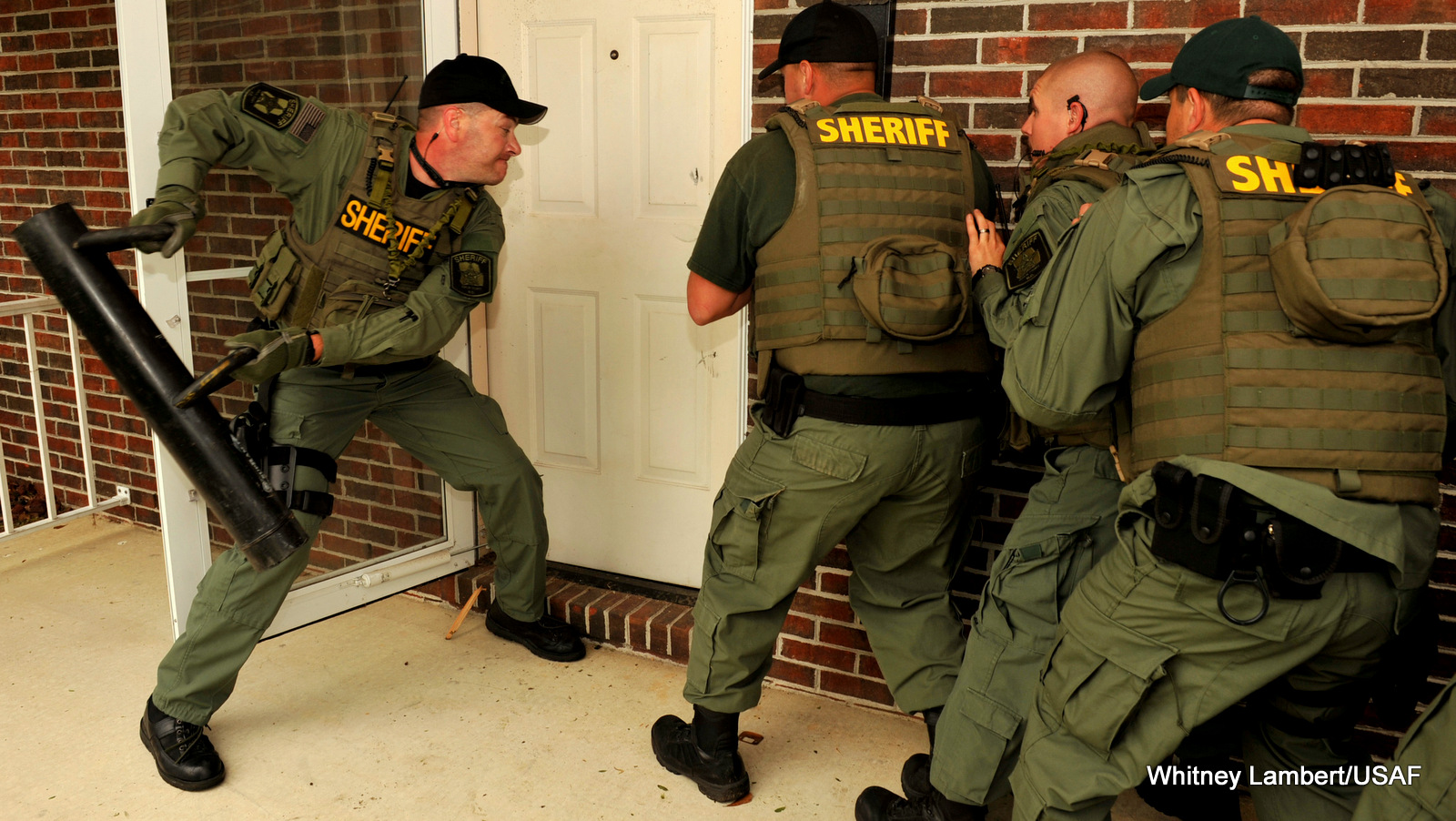
In State v. Ortiz, the WA Court of Appeals Division III held that police violated a defendant’s rights when they forced entry into his home after waiting only 6-9 seconds of their “knock and announce” during the early morning.
In late July 2011, Wapato Police Sergeant Robert Hubbard viewed the backyard of the defendant’s property from the vantage point of a cooperative neighbor. He saw two marijuana plants. Sergeant Hubbard was granted a search warrant for the property.
on August 11, 2011, at approximately 6:4 7 a.m., Sergeant Hubbard and 11 other police officers executed the search warrant at the property. He knocked on the door three times, announced “police search warrant,” waited one to two seconds, and repeated that process twice more. Hearing nothing inside the home, the officers breached the front door and entered the home.
Upon searching the property, the officers found 41 marijuana plants in various stages of growth and other evidence of a grow operation. Mr. Ortiz was eventually charged with one count of manufacture of a controlled substance, one count of involving a minor in an unlawful controlled substance transaction, and several other counts not relevant on appeal.
At the end of trial, the jury found Mr. Ortiz guilty.
On appeal, Mr. Ortiz argued he received ineffective assistance of counsel because his defense attorney failed to challenge the execution of the search warrant for failure to comply with the knock and announce rule.
EFFECTIVE ASSISTANCE OF COUNSEL.
The Court of Appeals began by explaining that effective assistance of counsel is guaranteed by both the Sixth Amendment to the United States Constitution and article I, section 22 of the Washington Constitution. First, the defendant must show he received deficient representation. Second, the defendant must show he suffered prejudice as a result of the deficient performance.
“KNOCK & ANNOUNCE” RULE.
Next, the court explained the “knock and announce” rule. The Fourth Amendment to the United States Constitution requires that a non-consensual entry by the police be preceded by an announcement of identity and purpose on the part of the officers. This is part of the constitutional requirement that search warrants be reasonably executed.
In WA State, the parallel requirement of article I, section 7 of the Washington Constitution is codified in RCW 10.31.040. It states, “To make an arrest in criminal actions, the officer may break open any outer or inner door, or windows of a dwelling house or other building, or any other enclosure, if, after notice of his or her office and purpose, he or she be refused admittance.”
The Court explained that in order to comply with the “Knock & Announce” statute, the police must, prior to a non-consensual entry, announce their identity, demand admittance, announce the purpose of their demand, and be explicitly or implicitly denied admittance. The requirement of a demand for admittance and an explicit or implicit denial of admittance have been merged into a ‘waiting period,’ often linked to whether the police officers are refused admittance.
Strict compliance with the rule is required unless the State can demonstrate that one of the two exceptions to the rule applies: exigent circumstances or futility of compliance. Finally, the proper remedy for an unexcused violation is suppression of the evidence obtained by the violation.
Here, the only disputed issue was whether the police waited long enough before they broke down the door. The answer to this question depends upon the circumstances of the case.
The Court elaborated that the reasonableness of the waiting period is evaluated in light of the purposes of the rule, which are: ( 1) reduction of potential violence to both occupants and police arising from an unannounced entry, (2) prevention of unnecessary property damage, and (3) protection of an occupant’s right to privacy.
Here, the Court believed the waiting period of 6-9 seconds was unreasonable:
“In this case, due to the early hour of the search, the occupants were foreseeably asleep. Six to nine seconds was not a reasonable amount of time for them to respond to the police, and thus no denial of admittance can be inferred. Even Sergeant Hubbard admitted it would not be a surprise that sleeping occupants would be unable to respond in that amount of time. In addition, the purposes of the rule were not fulfilled due to the property damage done by battering in the door. The police did not comply with the rule.”
Although the State presented cases where the “knock and announce” rule was adhered to after police officers breached entry quickly after announcing, the Court nevertheless reasoned that in each of those cases the defendants were both present and awake. But here, the officers did not have any indication the home’s occupants were present or awake.
Because the police violated the knock and announce rule, and there is no legitimate strategic or tactical reason for failing to challenge the search, counsel was deficient for not moving to suppress the evidence. This deficiency, reasoned the court, prejudiced the defendant.
The Court concluded that Mr. Ortiz established that he was deprived of his constitutional right to effective assistance of counsel. The court reversed his convictions and remanded the case back to the trial court with directions to suppress the fruits of the illegal search.
My opinion? Excellent decision. Search and seizure issues like this are incredibly interesting. For more information on the case law surrounding these issues please review my Legal Guide titled, Search & Seizure: Basic Issues Regarding Their Search for Weapons, Drugs, Firearms and Other Contraband.
And please contact my office if you, a friend or family member are charged with a crime. Hiring an effective and competent defense attorney is the first and best step toward justice.














